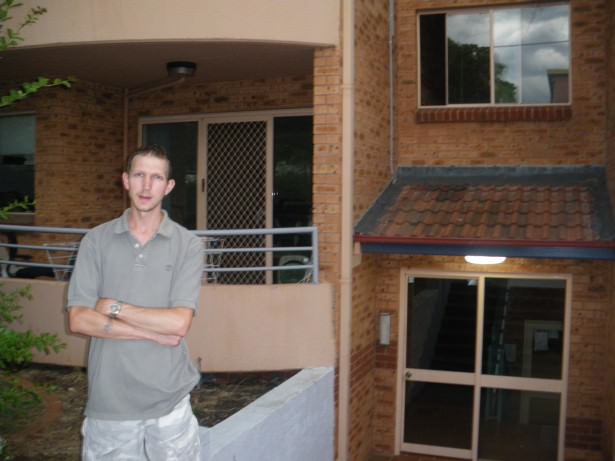In this era, investing in property has become a new trend. Every year, more and more people become remote landlords. Whether it’s an investment property, a second home, or timeshare, it’s an attractive prospect to those wishing to grow their wealth while managing a property from afar.
Where there are landlords, there are also tenants. As a landlord, you have specific responsibilities to fulfill. But don’t let the idea of managing a property in another state or hundreds of miles away overwhelm you. If you’re a remote landlord with a full-time job, you’ll find many resources that can help you carry out property management tasks effectively like this article. So, continue reading to learn how.
- Enlist The Help Of A Property Manager
If you don’t have time at your disposal or the resources to handle the management of your property, then you should hire a professional. They’ll be able to manage your property for you so that you can focus on the other aspects of your business.
As mentioned by the property managers at Tetonvalleypropertymanagement.com, when finding the right manager for your property, you have to ask the following questions:
- What is their experience level?
- How can they generate profit for your property?
- How do they plan to attract tenants?
- How will they negotiate on your behalf?
- How will they address any tenant issues?
Once you have all the answers to these questions, you’ll be able to make an informed decision on who is suitable to be your property manager.
- Visit The Property Every Now And Then
When you have a property manager, you’ll no longer have to visit the property often. However, you should still do periodic checkups on the property. It’s essential to meet with the property manager every now and then to discuss any problems with the property and make sure that the property manager is doing their job.
It’d be best to do this at least once every six months. A lot can change in half a year, and by visiting the property, you might spot problems before they get out of hand.
- Set Clear Rules On Your Property
Rules are essential when it comes to protecting your property; some are obvious. Without them, you’ll have no control over who can and can’t be on your property.
Besides, rules help you and your tenants know what to expect from each other. So, they should be clear to anyone who might visit your property.
It’ll help if you also have rules in place regarding the property’s condition. For example, your rules may state that you’ll take legal action if the property is damaged or destroyed.
- Hire Professionals To Maintain The Property Regularly
The cleaning and mowing of grass on your property isn’t an easy job. Hence, it’s best to hire professionals who will make sure that your grass is well-maintained. A tidy space will attract tenants.
- Get Your Property Insured
If you’re looking to manage your property remotely, getting an insurance cover should be on your priority list. The last thing every landlord would want is to have property damage happen and not have insurance to cover it. There are several renowned companies out there to choose from, but you should get the one that can give you the coverage you need.
- Make Use Of Technology
In this technological era, it’ll be beneficial if you take advantage of the available tools to manage your rental property remotely. For instance, you can get online applications for tenants and use software for your accounting. There’s even inventory management software available for properties.
With all these tools, you’ll increase your rental income and reduce your overheads.
- Sign The Right Kind Of Rental Agreement
When you sign a lease agreement with your tenant, make sure that they’ll stay committed to it. You have to give them a copy of the lease agreement and see to it that they understand the terms and conditions and that they’ve signed the document. Ensure that you have a copy of the original contract as well.
However, if your tenant wants to go against the lease agreement, they’ll have to go through a process that you should discuss with them. In case your tenant isn’t following the terms listed in the lease agreement, you should send them formal notice.
- Screen Your Tenants Thoroughly
One important thing that a landlord should do is screen their tenants thoroughly. Though you can conduct personal interviews to learn about prospective tenants, consider availing of services of a background screening company who will make the job easier for you.
However, if you choose to do this task solo, make sure that you look into whether the applicant has a criminal record. You can do this by requesting a copy of the applicants’ fingerprints. You should also search their credit history and contact their past landlords. If possible, check their Facebook and Twitter accounts. It’s crucial to learn about the prospective tenant as much as possible so that you can find out whether you feel comfortable with them.
But if you’re struggling to gather information on the tenant, there’s likely a reason. A bad tenant will know how to be evasive and get around the screening process in that situation. You wouldn’t want to rent out your property to someone suspicious.
Thus, to protect yourself and guarantee the safety of your property, you need to perform proper screening of tenants. This process will help you weed out undesirable applicants and avoid future evictions.
- Set Up Digital Payments For Tenants
Since your tenants might want to avoid contracts to save money, you need to set up a digital payment system. You can set up an online payment system for your property by using PayPal, a virtual wallet service like Venmo, or a credit card reader that works with your phone. By accepting online payment, you can be sure that you’ll receive your money and reduce the risk of default.
Final Word
Managing a rental property, whether remotely or in person, can be challenging. But it can be a smooth process when you follow these helpful tips. As long as you know the basics, you’ll avoid common pitfalls that come with handling rental properties.


